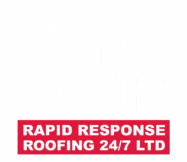Is Your Roof a Fire Hazard? What Blackpool Homeowners Need to Know
When you think about home fire safety, your mind probably goes to smoke detectors, kitchen appliances, and overloaded sockets. But what about the one thing protecting your entire home from the elements—your roof? While a roof itself isn’t a direct fire risk, issues in your loft space and the wiring within it can be, and a damaged roof can create conditions that make these problems even more dangerous.
This is a hidden danger for many properties in Blackpool. Here are some of the key things you should consider:
1. Damaged Wiring in the Loft
Many older homes have electrical wiring in the loft space that can be easily damaged. A leaking roof can expose this wiring to moisture, creating a serious fire risk. Similarly, a poorly maintained roof could allow pests like rodents to get into your attic, where they can chew through electrical cables. When a roofer is in your loft, they are often the first person to spot these hidden dangers. It is always wise to have a professional roofer in Blackpool assess the full extent of any roof damage, including what’s happening in your loft.
2. Solar Panel Installations
The popularity of solar panels means more and more homes are getting electrical work done on their roofs. While solar panels are very safe, it is crucial that the installation is handled correctly. This involves not only the secure mounting of the panels but also the proper and safe routing of all electrical cables through your roof and into your home. A professional roofer can ensure your roof’s integrity is maintained, but for the electrical connections, you need to use a certified expert. If you are considering adding new lights or a solar energy system to your home, a professional Blackpool electrician can ensure the new electrical work is done safely and to the latest regulations.
3. Storm Damage and Lightning
Blackpool is no stranger to strong winds and thunderstorms. A lightning strike on a home can cause an electrical surge that can ignite fires. While you can’t prevent lightning, a well-maintained roof can reduce the risk of structural damage that might lead to a fire, and surge protectors can help mitigate electrical damage inside your home.
In conclusion, your roof is not just about keeping the rain out; it’s a vital part of your home’s overall safety system. It’s a key part of your home’s defense against the elements, and keeping it in top condition is a great step towards preventing problems. By working with professionals who understand both the roofing and electrical components of a house, you can protect your home and your family from hidden dangers.
